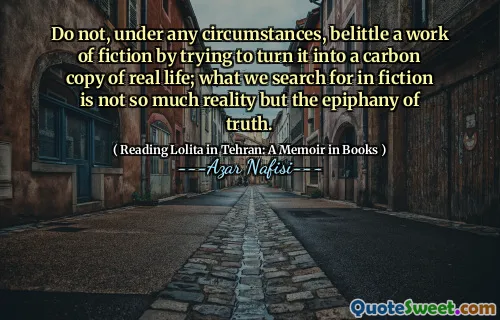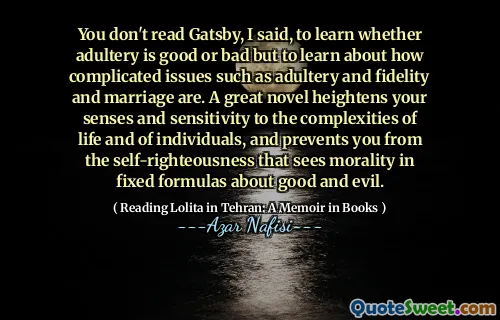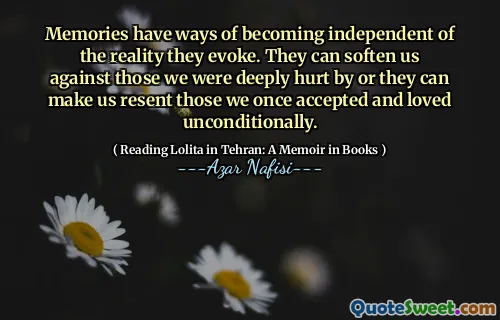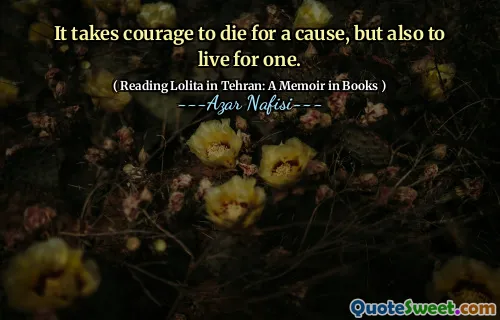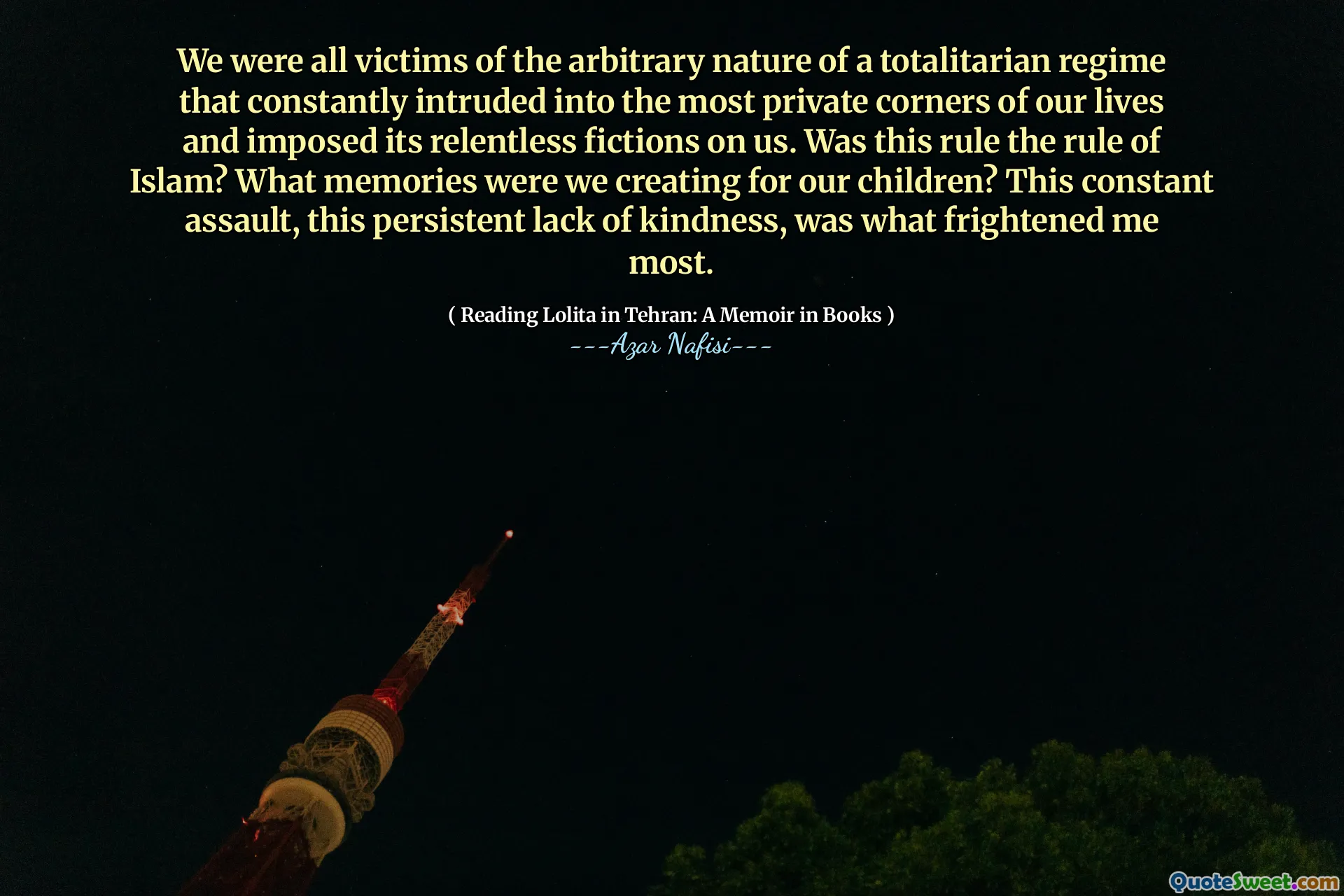
We were all victims of the arbitrary nature of a totalitarian regime that constantly intruded into the most private corners of our lives and imposed its relentless fictions on us. Was this rule the rule of Islam? What memories were we creating for our children? This constant assault, this persistent lack of kindness, was what frightened me most.
📖 Azar Nafisi
In "Reading Lolita in Tehran," Azar Nafisi reflects on the oppressive environment created by a totalitarian regime that invaded personal lives and forced distorted narratives upon its citizens. She questions whether this oppressive rule can truly be classified as Islamic, highlighting the dissonance between religious principles and the reality of life under such a regime. This creates a deep concern for the legacy being left for future generations.
Nafisi's narrative reveals a profound sense of fear rooted in the regime's unrelenting cruelty and a lack of compassion. This persistent assault on individual freedoms strikes at the very core of her identity and values, prompting her to ponder the memories and ideals that are being shaped for her children amidst such suffering. The relentless control and lack of kindness emerge as the most terrifying aspects of life under a totalitarian rule.

